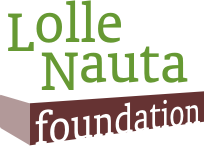Current
PhD projects
Janet Serenje, Gabriel Walubita, Mubanga Mofu
Research started in 2016.
Title PhD Thesis: Effects of stories, songs, and rhymes presented through electronic media on language and literacy skills among preschool and first grade learners in Zambia
Supervisors:
- Dr. Beatrice Matafwali, PhD University of Zambia
- Dr. Tamara Chansa, PhD University of Zambia
- Dr. Sophie Kasonde-Ng’andu, PhD University of Zambia
- Dr. Sylvia Mwanza-Kabaghe, PhD University of Zambia
- Prof. dr. A.G. Bus, PhD Leiden University
Research has shown that children have problems with learning to read in an unfamiliar Zambian language of instruction (Matafwali & Bus, 2012; Tambulukani & Bus, 2012). The step into reading in the local Zambian language officially designated as language of instruction may be facilitated by familiarizing children in preschool with songs, rhymes and stories in language of instruction.
As we move forward into an ever more complex and technologically advanced world where the use of electronic books are quickly becoming widespread in education, there is need to explore how helpful electronic media may be. The main aim of the present study is to tet whether familiarizing children with songs, rhymes and stories in the Zambian language of instruction is a step-up to learning to read and whether ICT can support this process.
Some children may be more sesceptible than others to literacy-enhancing environmental conditions due to the role of biological processes that interact with environmental influences to shape children’s adaptation (Kegel et al., 2011; Takacs et al., 2015; Curtis & Cicchetti, 2003; Masten & Obradovic, 2006). This implies that some vulnerable children may achieve exceptionally well as a result of extra programs, while other children who are less vulnerable may hardly benefit (Mubanga, 2010).
Participants in this study will be 6 year old preschool children of 20 preschool centers. This study will be carried out in one or more districts in which for the majority the language of instruction is different from the language spoken at home. It is expected that children who are less fimiliar with the language of instruction will thus have a chance to familiarize with the language of instruction through songs, stories and rhymes and, as a result of that, benefit more from reading instructions in first grade.
Per centre about 30 children will be randomly assigned to one of three conditions: 1. Games, 2. Stories, songs and rhymes and then games, 3. No intervention. All children will be tested before the study (T1). One-third of the children then receives the songs, rhymes, stories software and one-third games that are not literacy-related. Children will be given a final test afther the invervention (T2). The same children will be tested at the start and at the end of grade 1 to assess whether exposure to rhymes, songs and stories through electronic media in preschool enhances their ability to read in first grade.
It is expected that the knowledge generated by this research will inform the Zambian educational policy and practice and make preschool education more benificial.
